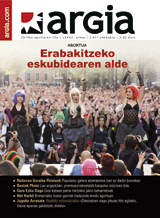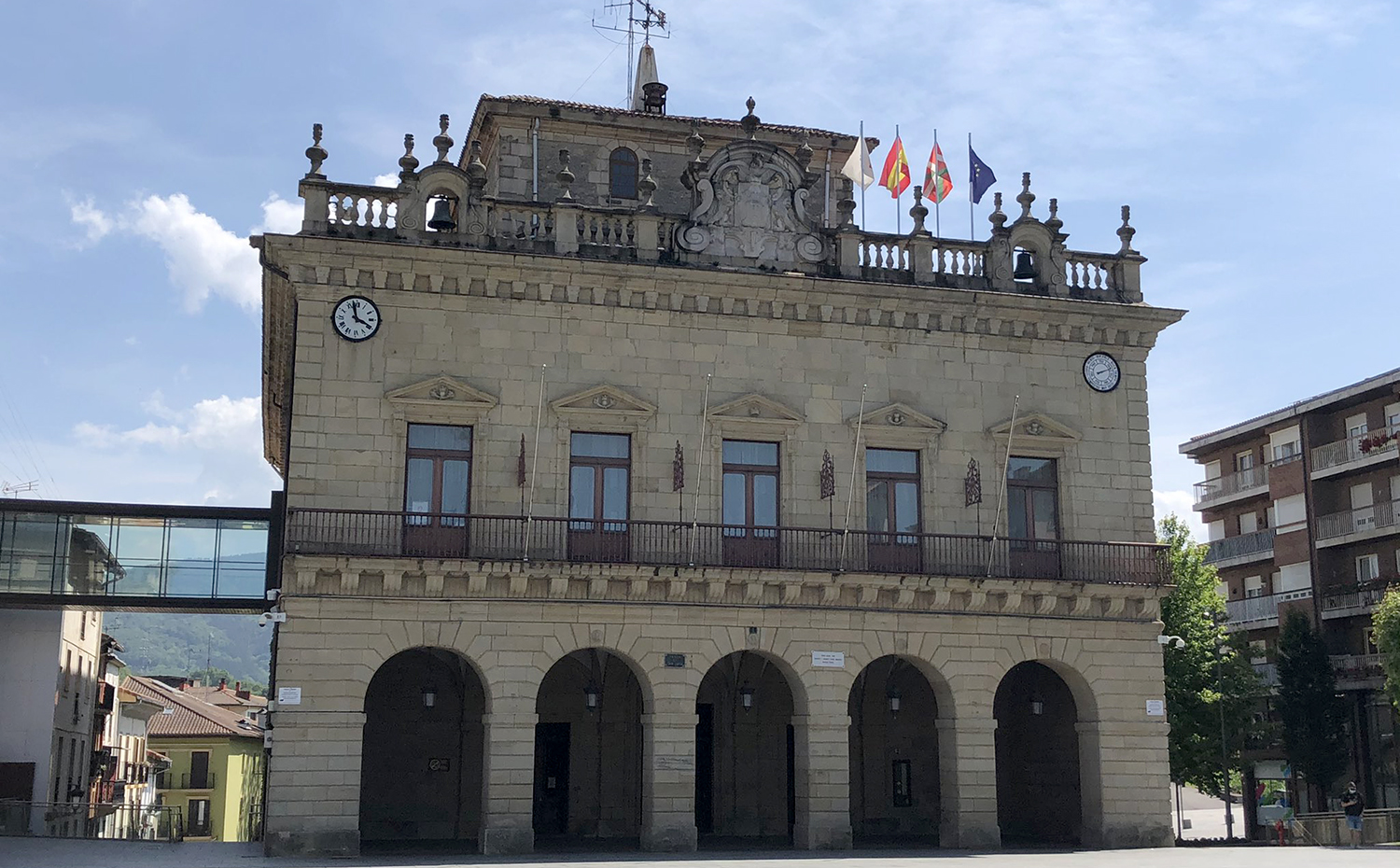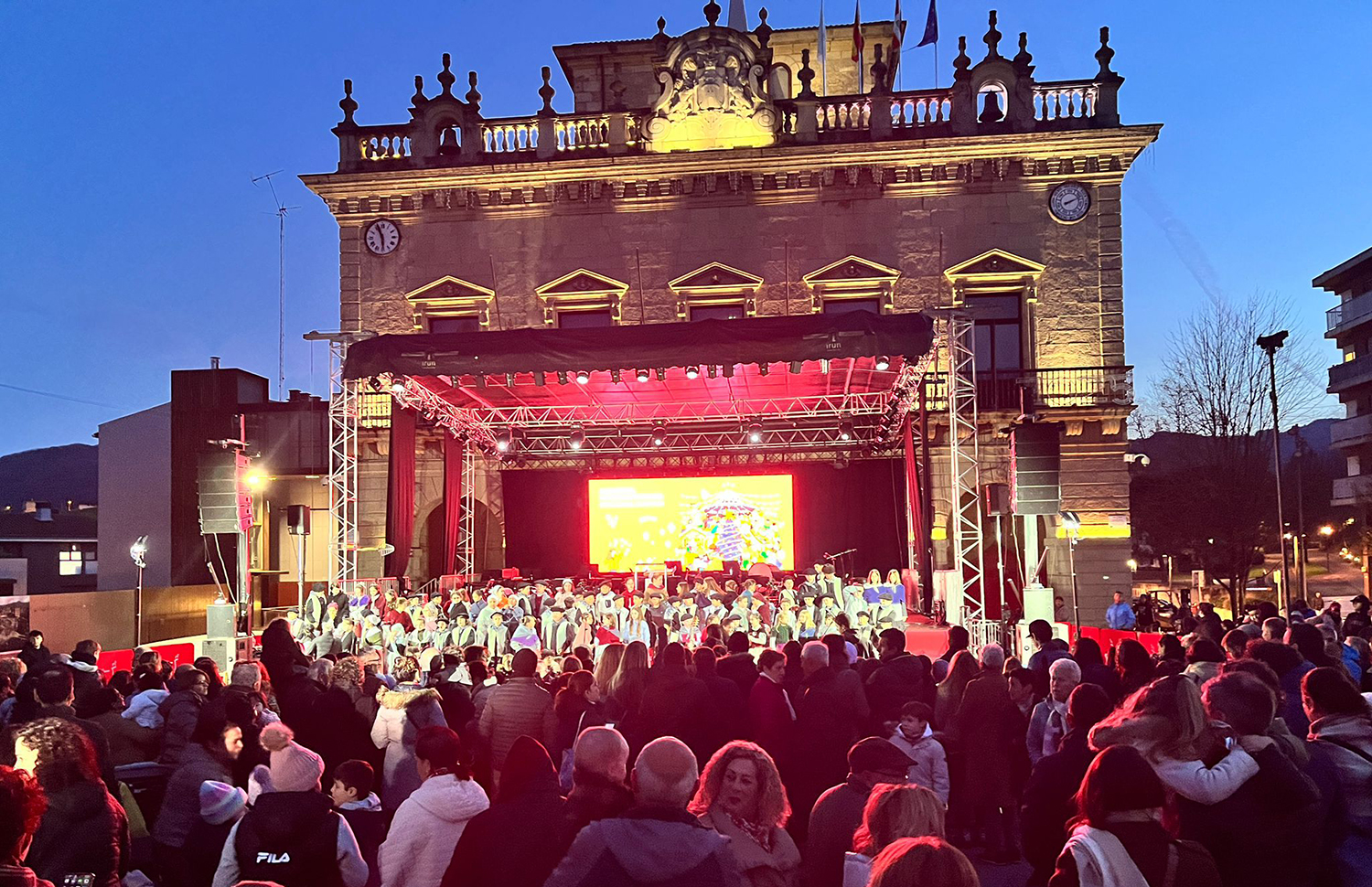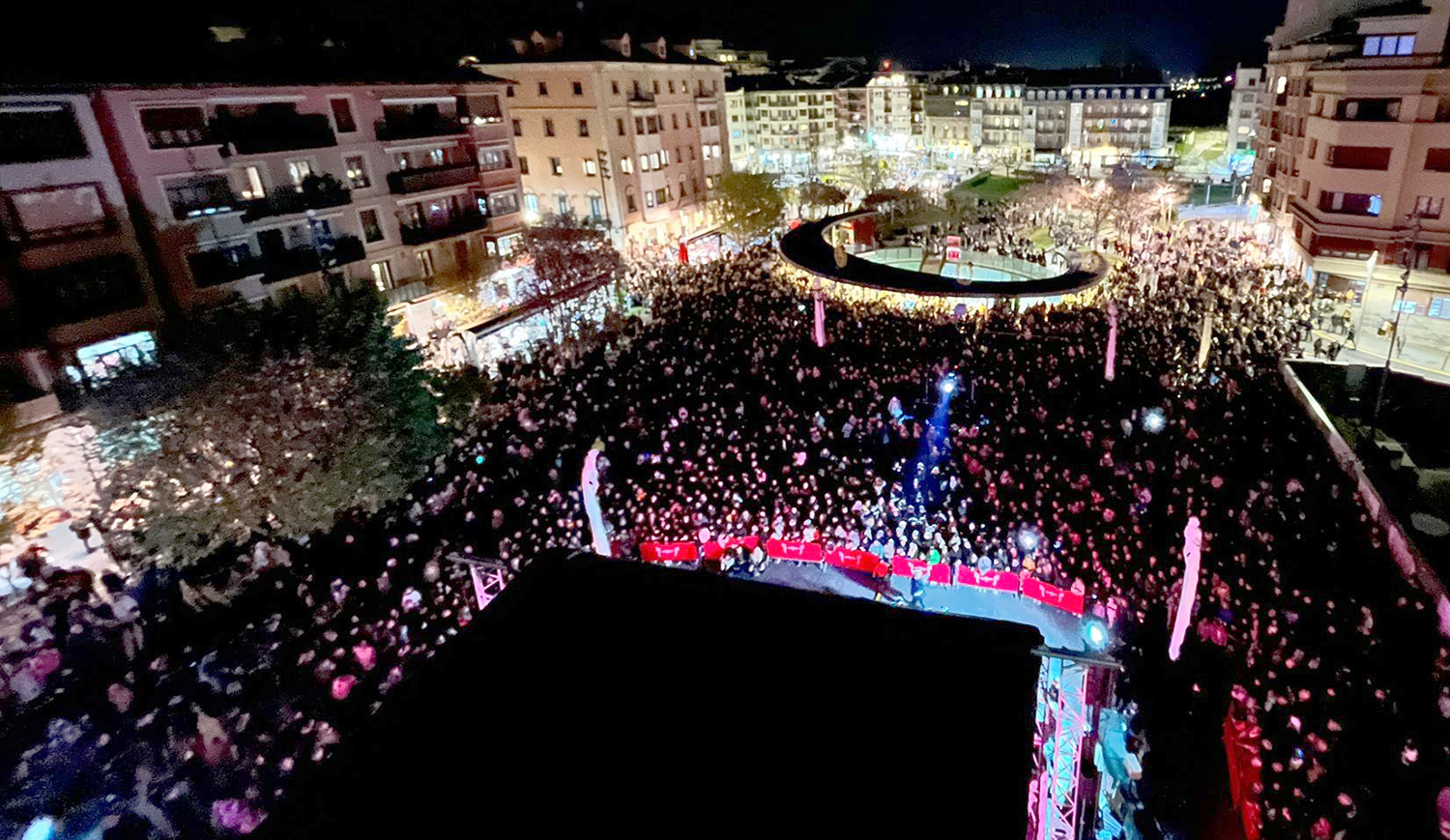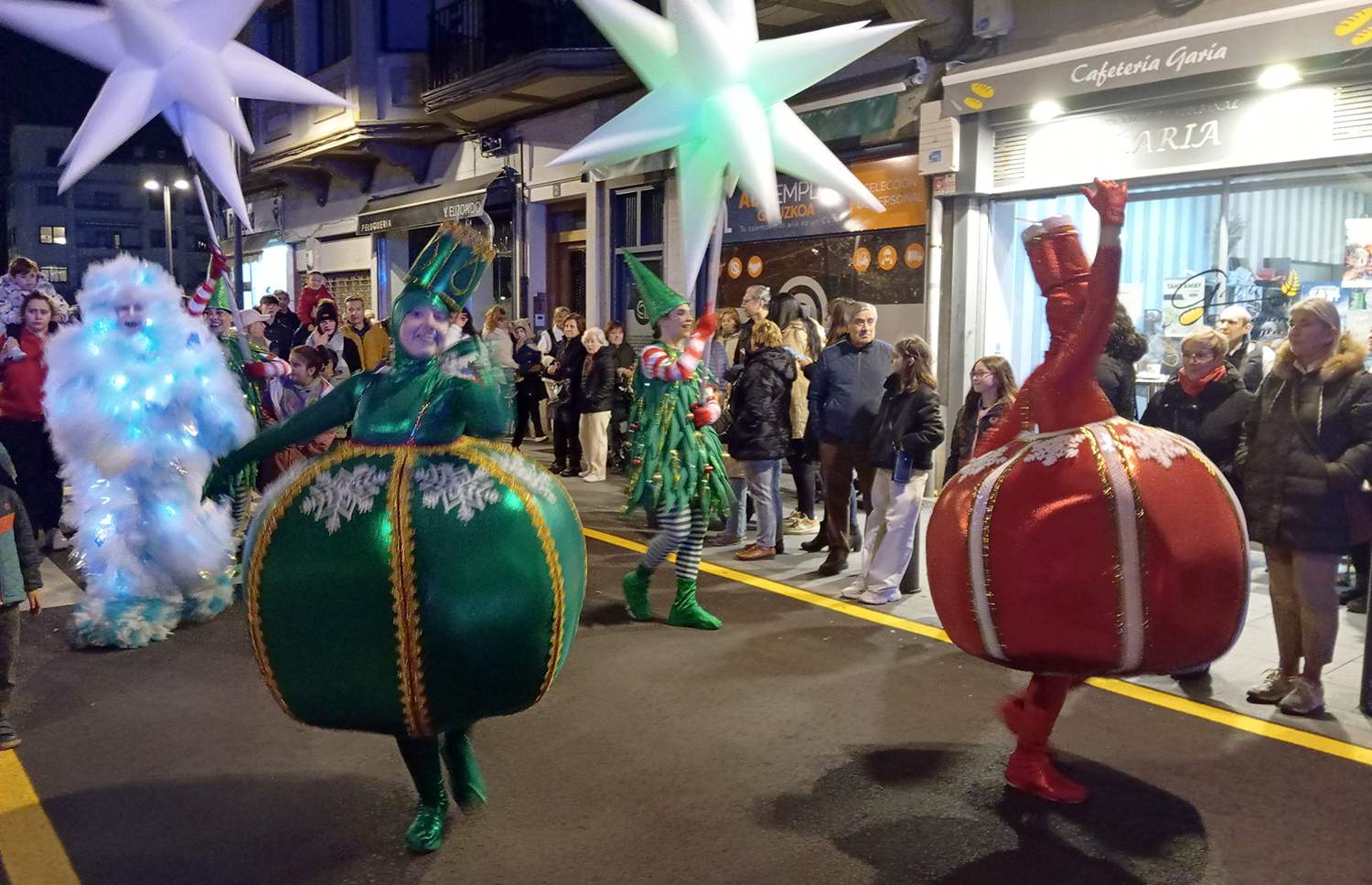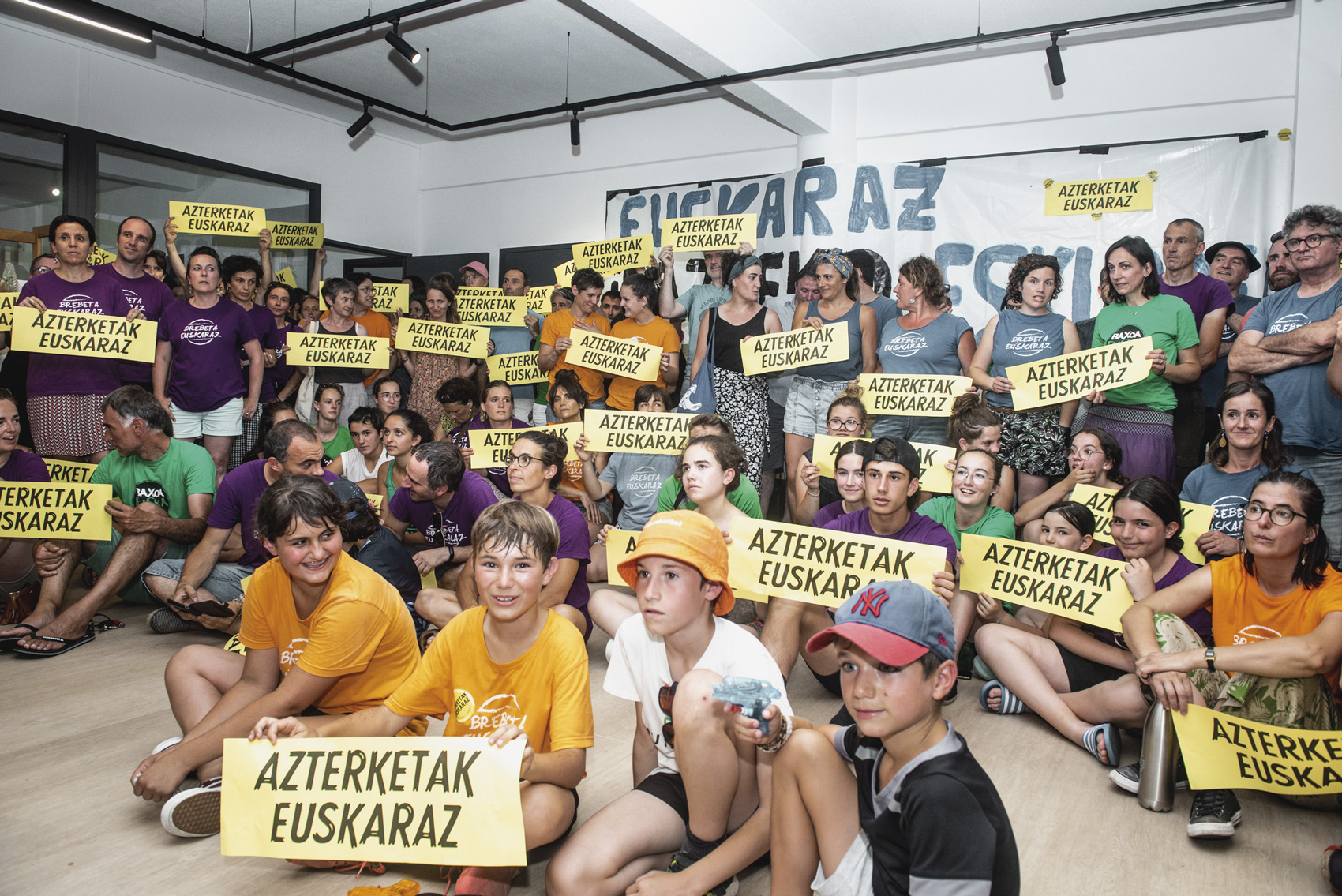In Basque with the City Hall, on the street I would prefer in Spanish
- Bermeo City Hall speaks 100% Basque. Citizenship has become accustomed to speaking in Basque with the administration. However, the challenge remains to promote and increase the use of Euskera in the city. This is the goal of the new plan until 2017.
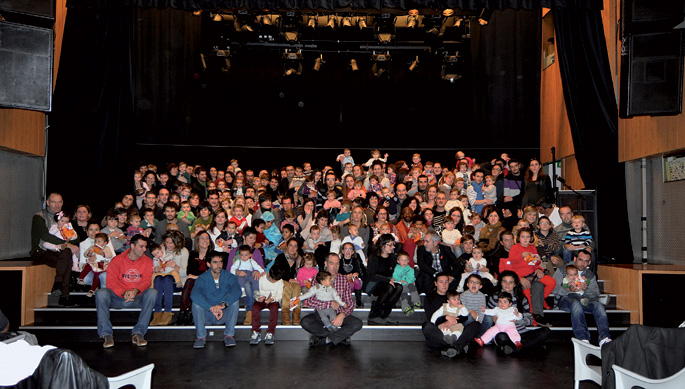
To locate three data: 1) 74% of the applications submitted in the Register of Associations of Municipalities of Bermeo (Bizkaia) were in Basque last year. 2) The Basque knowledge is 74%. 3) Street use is 36.6%. The imbalance shown by the numbers is, at least, striking. The first has been given to us by Maite Alvarez de Zarate, a municipal technique of Euskera: “At the City Hall we work in Euskera”, it is more, “our translator speaks mostly in Spanish”. In Bermeo, speaking in Basque with the administration has gone from being a claim of citizenship to being a reality. The City Hall has assumed linguistic leadership. However, the use of the street does not correspond to the use of the language given in the relations with the City Hall. “The data say that the use has decreased, but we do not know if it is a trend the loss of Euskera space in social life; it must be investigated,” the municipal technician says. Work is being done on this together with the other municipalities of UEMA. Meanwhile, in the same town, they have a very strong project in hand: Also in ours, yes. Without losing sight of the data from the 2011 measurement of the street made by the Cluster of Sociolinguistics, they have approved the new plan of Euskera 2013-2017. The plan, which has been drawn up with the consultant Elhuyar and which is already the fourth Basque plan, has among its priorities the transmission.
“We are in need of many social sectors and have made sectoral diagnoses in the sports, business, associative and family school areas.” In the process of reflection with about 80 citizens analyzed the use of four blocks and concluded five lines of work: working leadership to promote Euskaldun activity; working to raise awareness, to realize the importance of the use of the Euskera; valuing the Euskera in all areas of use; prestigious it, to promote the prestige and influence of the Euskera; and reinforcing the feeling so that the Basque is perceived.
Sports in Basque
Sport is one of the fields of influence. Work is under way on a bilateral strategy. On the one hand, it is working with the sports board to make the sports club offer more Euskaldun, as “there are still gaps”. On the other hand, they have given priority to two town sports teams: the rowing team and the football teams. Both have been chosen “by their symbolic force and presence”.
As Álvarez de Zarate has confessed, “we are aware that in paddle and soccer we will reach a few girls, and that is why we will also start working on the handball team, because there are more girls there”. Rhythmic gymnastics is the one that in Bermeo brings together most athletic girls, but the municipal technician sees the intervention more difficult, as they bring monitors from outside and speak in Spanish. “We are aware that we have started with the teams that are most likely to improve the situation,” says the technician.
Do you really want me?
It is a project that is being developed in the field of prestige and feelings. test ttiki.com/63393. After the TELP workshops, an activation group was formed in the village. “Every two months we have worked on what can be done in each one’s area of influence. We’ve worked for 2-3 years and now we’re working with parents,” they told us. The test proposes that in some situations you answer if you speak Basque or Spanish. The objective has been to speak, debate and dialogue among the citizens about the motivation to speak in Basque or in Spanish. As explained to us by Álvarez de Zarate, for the time being the questionnaire has only been distributed on the street, but the experience has been beautiful and they intend to continue. In fact, this test was derived from the work that had been started with the parents and a second session has already begun with the associations of mothers and fathers of the four schools of the town. They work to make others aware of the influence of the linguistic habit and to recognize the place that corresponds to the Basque.
Creativity, strategic
Among the broadcast projects, in addition to the literary workshops aimed at high school students and the readers' txoko, the Ipuin lapikoa project was also launched. It is an initiative to promote contact and oral transmission between generations. A group of citizens meets with a dynamism and storytellers. The work dynamic is simple: giving a theme, the elderly people shake their memory by remembering stories of an era. They now work together with the 5th and 6th grade students of the public school. Students bring information about this topic from their homes to school and exchange it with the local elders. Looking to the future, you want to use history and all that information to create stories. And, well at the end of the year party, stories will be depicted in front of parents. According to Álvarez de Zarate, “it is a small thing, but very nice, and it is directly related to the transmission of culture”.
Verses of newborn children
The fifth line of work of the Euskera plan refers to the empowerment of feelings, in particular, to the awareness of the pride of being Euskaldun and to the empowerment of this positive feeling. Bermeo’s Euskera plan, however, has not emerged from scratch. It is the result of the work carried out in the previous decade, and that is when the initiative of the bertsos is carried out. In 2002, they began to give bertsos to the children who were born in the village. They do so with the help of the group of bertsos LililiBertso of Gernika. They give the girl a bertso and every year they receive them in a booklet. They've already created about 2,000 bertsos. “The objective is to generate love, sensitization towards the Basque country, in short, to connect the language with feelings”.
These are just a few concrete initiatives. The Basque plan will take place until 2017. In fact, the Basque advisory council of Bermeo has a network of contacts with more than 300 local agents and its objective is to continue taking steps with the aim of mobilizing it and making an awareness campaign. Just as they have managed to euskaldunize the City Hall, it will be the case that the use of the Basque Country in the municipality is closer to the level of knowledge.
Gabonetako argiak pizteko ekitaldia espainolez egin izanak, Irungo euskaldunak haserretzeaz harago, Aski Da! mugimendua abiatu zuen: herriko 40 elkarteren indarrak batuta, Irungo udal gobernuarekin bildu dira orain, alkatea eta Euskara zinegotzia tarteko, herriko eragileak... [+]









